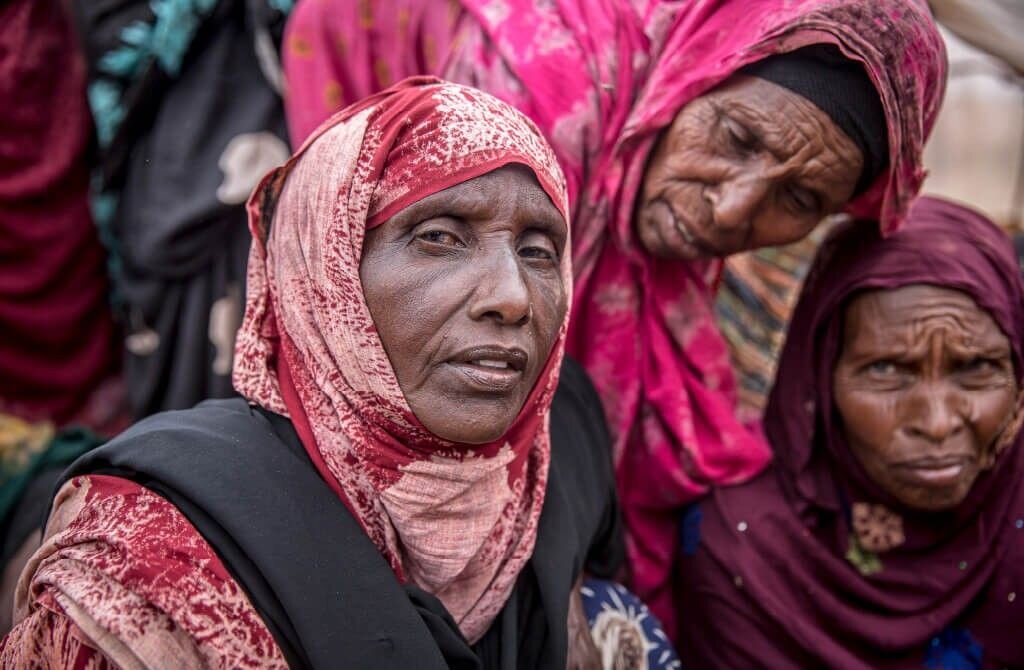About Us
Who We Are
Women for Women Social and Development Association (WfWSDA) is a registered local civil society organization in Ethiopia, with registration numbers 3555 and 1113/2019 under the Agency for Civil Society Organizations (ACSO). Our organization was established in 2015, with the aim of empowering women and girls through education, economic development, and advocacy programs. We are committed to promoting gender equality, reducing poverty, and improving access to healthcare and other essential services for marginalized communities.
The establishment of Women for Women Social and Development Association (WfWSDA) is rooted in a powerful and heart-wrenching true story. Aberash Bekele, a young girl from Ethiopia, was brutally abducted for forced marriage at just 14 years old. In a harrowing tale of resilience and determination, Aberash managed to escape her captor by shooting him while fleeing to safety. However, she was subsequently charged with murder and brought to trial, facing the daunting prospect of spending her youth behind bars.
Women for Women Social and Development Association (WfWSDA) is dedicated to advancing the well-being and empowerment of women and girls in Akaki districts. Through a holistic approach, the organization aims to achieve the following consolidated objectives:
Empowerment through Education: Our objective is to empower girls and women by enhancing educational opportunities, fostering skill development, and nurturing leadership capabilities.
Advancement of Gender Equality and Rights: We strive to advocate for gender equality and amplify women’s rights.
Prevention of Gender-Based Violence and Safety: Our objective is to prevent and mitigate gender-based violence, harmful practices, and discrimination faced by girls and women.
Community Empowerment and Inclusivity: We aim to empower communities to actively engage in fostering gender-sensitive and inclusive spaces.
Our History

The very essence of Women for Women Social and Development Association (WfWSDA) is deeply intertwined with the profound journey of Aberash Bekele, a survivor who turned her adversity into a catalyst for change. Aberash’s history is both a testament to resilience and a call for transformation.
At just 14 years old, Aberash’s life took a harrowing turn as she became a victim of abduction, a stark manifestation of gender-based violence that left indelible scars. Her courage and determination shone through when she managed to escape her captor by taking matters into her own hands, literally. She shot her abductor in self-defense, a courageous act that led to a murder charge and a trial that gripped the nation.
With an unwavering support network rallying behind her quest for justice, Aberash emerged victorious from the courtroom. However, despite her triumph, she faced the painful reality of being exiled from her own village due to the circumstances that had unfolded.
The victory in the courtroom was juxtaposed with the struggle for acceptance and a sense of belonging in her own community.
Yet, Aberash’s spirit refused to be silenced. Instead of retreating into the shadows, she transformed her experience into a powerful force for change. Step by step, she transitioned from a survivor to an advocate, channeling her energy towards fighting violence against girls and women. She committed herself to combating child marriage, championing girls’ education, and preventing the perilous migration of vulnerable young girls.
In the wake of Aberash’s journey, WfWSDA was born, a beacon of hope and a vehicle for transformation. The organization endeavors to dismantle the barriers that hinder disadvantaged schoolgirls, armed with the belief that education is the key to unlocking potential and fostering empowerment.
By uniting students, parents, teachers, community members, and government officials, WfWSDA envisions a world where violence is replaced with knowledge, where girls are free to thrive without fear.
WfWSDA’s vision extends beyond the classroom walls, reaching into the heart of communities to create a safe haven for girls to learn and grow. By enhancing academic excellence, curbing early migration, and fostering a culture of equality, the organization seeks to rewrite the narrative for rural girls, offering them a chance to flourish on their own terms.
As Aberash’s story continues to inspire, WfWSDA stands as a living testament to the power of transformation and collective action. With each step towards gender equality, each girl who dares to dream, and each life touched by their efforts, the organization inches closer to the vision of a society where every girl and woman can shape her own destiny.
Our Mission and Vision
Our Mission
Our Vision
Our Mission is to enable girls and women to participate in the social and economic development of the country.
Our Vision is to see the society whereby gender equality is ensured so that girls and women enjoy equal opportunity in the social and economic development of the country
Our Approaches
Community-Centered Empowerment
- Engage local communities to drive sustainable change through their active participation.
- Collaborate closely with community leaders and members to understand unique needs and aspirations.
Holistic Approach for Impact
- Combine interventions across education, health, economic empowerment, leadership, and inclusion.
- Foster synergy among initiatives for comprehensive and lasting change.
Gender-Transformative Initiatives
- Challenge harmful gender norms and attitudes to promote equity and women’s rights.
- Develop tailored programs addressing the specific needs of women, girls, and marginalized groups.
Collaboration for Amplified Results
- Form partnerships with local organizations, government agencies, and stakeholders.
- Leverage collective expertise, resources, and networks for wider impact.
Collaboration and Partnership
At Women for Women Social and Development Association (WfWSDA), We engage in meaningful collaborations with various stakeholders, including local communities, governmental bodies, non-governmental organizations, and international agencies, to drive positive change and address complex challenges. Our approach to collaboration and partnership is guided by the following principles:
- Shared Vision and Goals
- Complementary Expertise
- Local Empowerment
- Mutual Benefit
- Transparency and Accountability
- Resource Sharing

